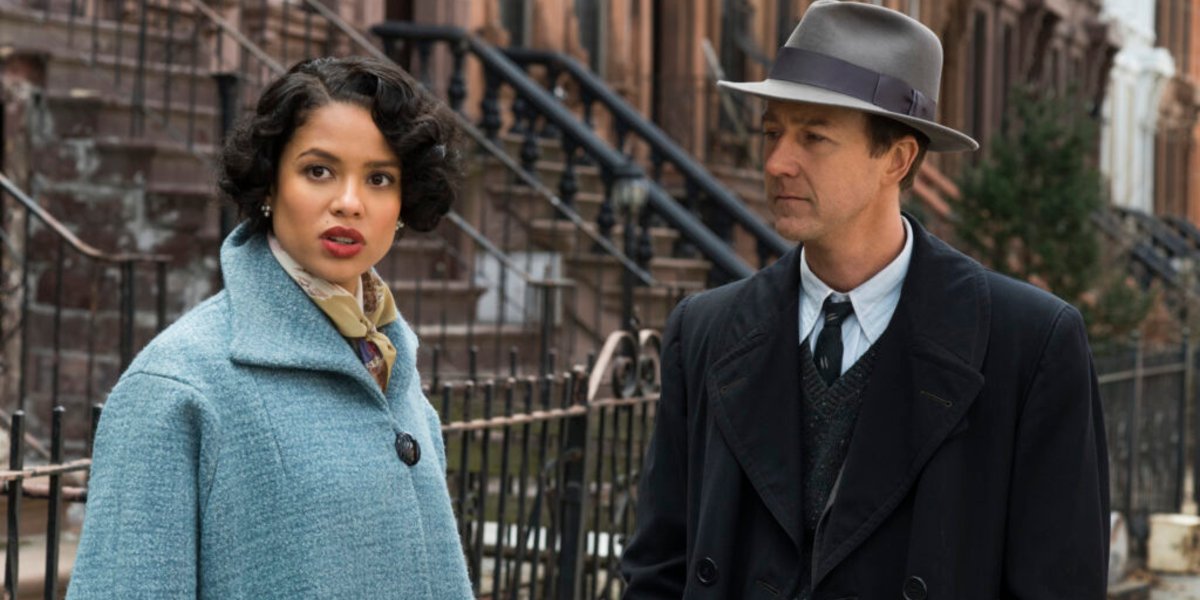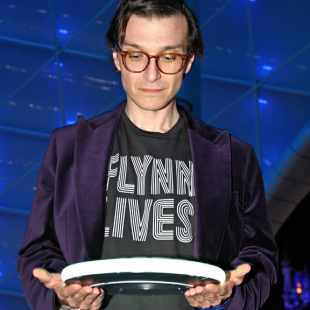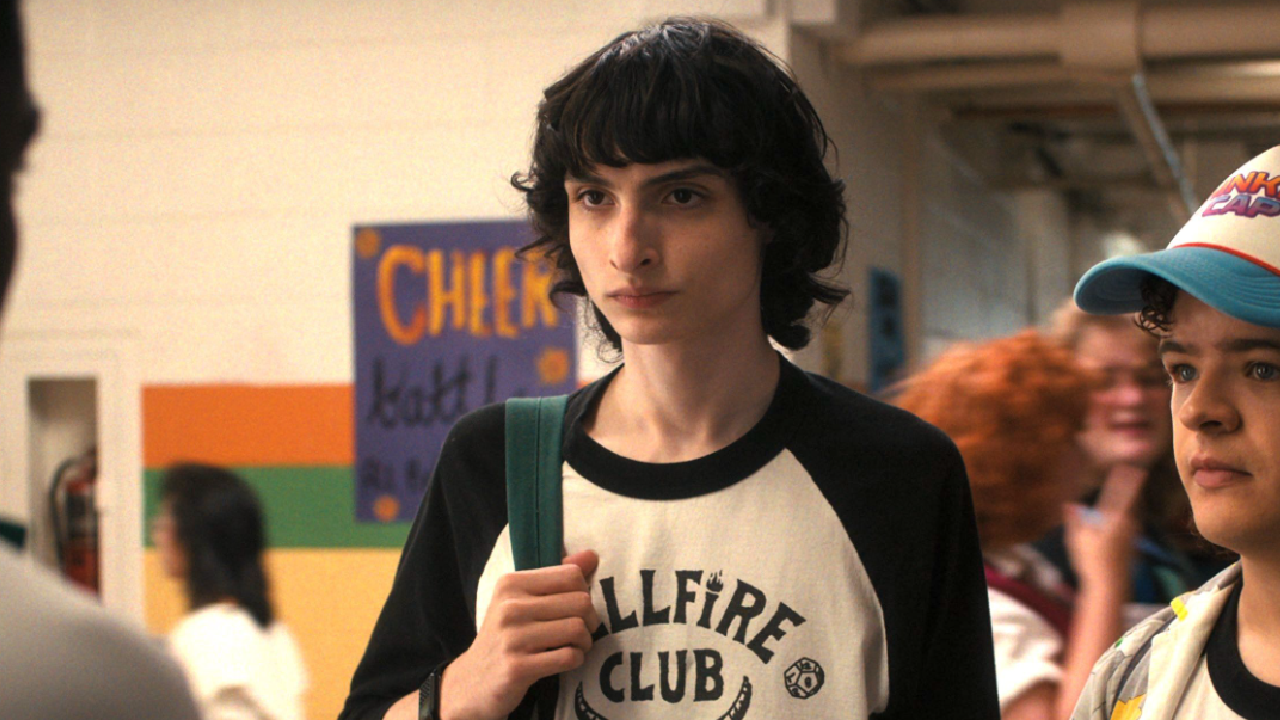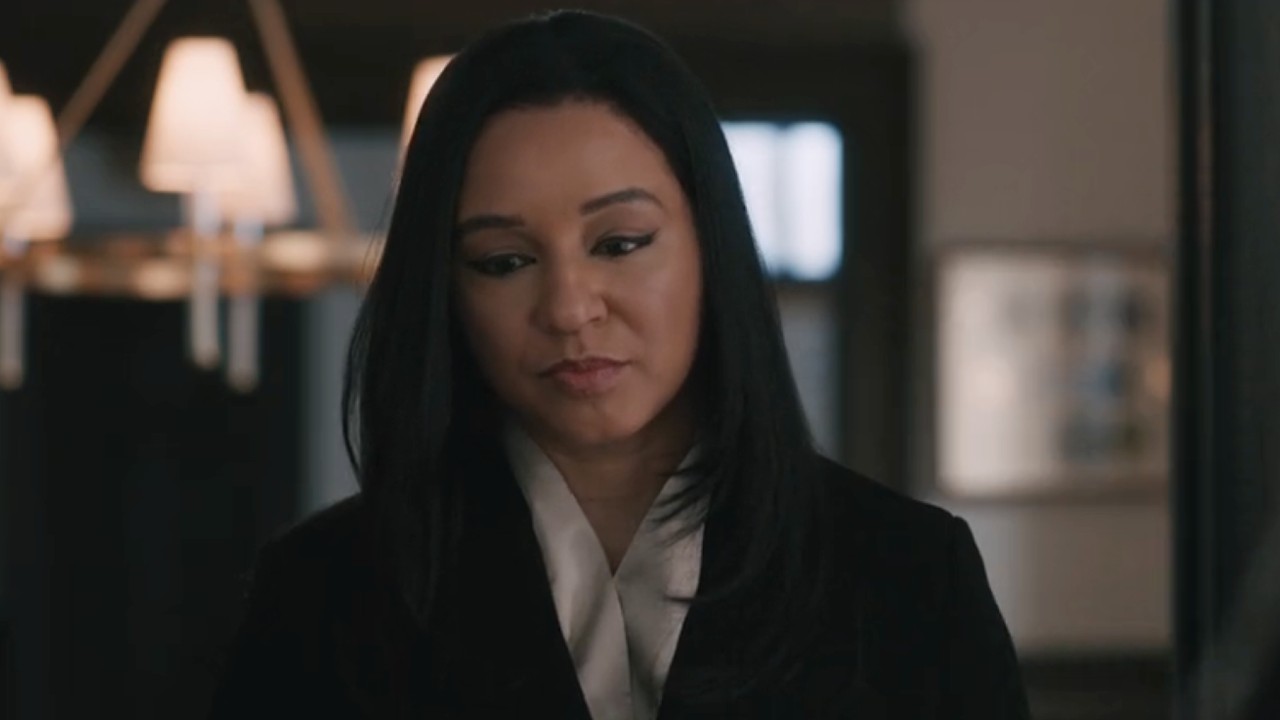How Gugu Mbatha-Raw’s Motherless Brooklyn Lead Differs From Other Film Noir Females

In the tradition of the film noir classics that writer/director Edward Norton’s Motherless Brooklyn has based itself off of, there’s a history of female characters being boxed into certain archetypes. Most prevalent is, of course, the femme fatale destined to lead our hero astray, ready to sell him out at a moment’s notice. And yet, actor Gugu Mbatha-Raw’s character Laura Rose differs from the typical mold for a female noir lead in one crucial way: she acts more like a normal person than a specter of fate and betrayal for our hero.
As I spoke with her on behalf of CinemaBlend during the press day for Motherless Brooklyn, I was curious how Mbatha-Raw felt about her character specifically differed from the historical treatment of women in this time tested, but not always progressive, genre. Part of her response was a direct callout to the traditions of the past, as she started with the following remarks:
I feel like, in our film, obviously in this sort of classic noir genre, you have the femme fatale. And I think Laura is sort of so much more than that, in a way. I think she’s a grounded, very real woman, even though she came from the Harlem jazz club scene.
As Motherless Brooklyn adheres to the usual film noir template in terms of its storytelling structure, as well as its eye for visual style, the plot and characters differ in some pretty big ways. One of which happens to be in Gugu Mbatha-Raw’s character, Laura, who is the furthest from a femme fatale you could get.
On top of a litany of reasons that Mbatha-Raw herself explained when we sat down to discuss Motherless Brooklyn, the other big touchstones that separate this character, and this film, from film noir traditions is a current of kindness that runs through the work that novelist Jonathan Lethem and writer Edward Norton have done on the film adaptation of this previously contemporary novel that the director took on as a passion project 20 years ago. Rather than just veer into hard-boiled detective fiction with his take on the source material, Norton uses film noir as an aesthetic framework for Motherless Brooklyn, but doesn’t totally drink from the well, so to speak.
Protagonist Lionel Essrog, played by Edward Norton himself, is carrying out his investigation as a sort of tribute to his slain friend and boss, but rather than going into it with a mindset of pure revenge, Lionel doesn’t want his friend's death to have been meaningless. So obviously, he needs to solve this case to validate that work.
In a similar vein, Laura Rose is fighting out of love for her community. As an activist, she is opposed to politically corrupt dealings that threaten to put herself and her fellow residents of Harlem out of their homes. Her valiant efforts, paired with Lionel’s detective skills, eventually uncover what’s at the center of this mystery plot.
You can hear Gugu Mbatha-Raw further explain the difference between Laura and the standard femme fatale, in the clip from our interview below:
CINEMABLEND NEWSLETTER
Your Daily Blend of Entertainment News
The more modern sensibilities of characters, mixed in with the look and feel of a film noir, are what make Motherless Brookyn a truly fantastic film that can be accessed by modern audiences, while standing firm as an example of the genre it so idolizes. To that extent, Laura Rose is a crucial piece to why this movie can operate in that sort of context.
If Laura were to be played as the typical femme fatale character, the themes and messages of Motherless Brooklyn would be colored with a sort of bitter light. With that sort of character, it almost always turns out bad for our hero, as he’s either going to be betrayed or he’s going to have to betray/kill her in order to “win”.
Edward Norton’s noir world doesn’t do that to Gugu Mbatha-Raw’s role, and as such she operates as another hero to the piece. That fact ultimately feeds into Norton’s intent to show people connecting over similar, righteous causes and working together in order to best those that stand against them.
Interpreting the film’s title in reference to what goes on in its story, Motherless Brooklyn isn’t only Lionel’s nickname, it’s a statement to the times that he and Laura live in. Without a sort of parental figure guarding their communities from Alec Baldwin’s power broker Moses Randolph, they need to stick together if they have any shot of making it to the end of the film in once piece.
Gone is the solitary gumshoe, and in its place is Edward Norton’s Lionel and Gugu Mbatha-Raw’s Laura, looking after each other rather than competing for some prize at the end of a pitch black morality play. While you might be knocked for a loop with the ending to Motherless Brooklyn, it’s not spoiling too much to say that the final result isn’t someone laying in a pool of blood, narrating their last thoughts to the camera.
Laura Rose’s densely layered character is something that not only makes Motherless Brooklyn all the more exciting to behold, it gives Raw a strong female lead that matches her on-screen partner note for note in strength. In fact, there are some scenes where she’s the stronger of the two, helping guide Lionel in moments where his Tourettes is a little more than he can handle. In such scenes, neither character looks weak or domineering, rather it’s just two people, partnered together to get to the end of the day as easily as possible.
Kindness is key to this world, and with Gugu Mbatha-Raw as one of the gatekeepers to such generosity and knowledge, her work in this film helps drive what is a moving human drama, and a gorgeous tribute to film noirs of the past.
Motherless Brooklyn is in theaters this weekend, and keep it tuned here to CinemaBlend for more coverage on the film as the week goes on.

Mike Reyes is the Senior Movie Contributor at CinemaBlend, though that title’s more of a guideline really. Passionate about entertainment since grade school, the movies have always held a special place in his life, which explains his current occupation. Mike graduated from Drew University with a Bachelor’s Degree in Political Science, but swore off of running for public office a long time ago. Mike's expertise ranges from James Bond to everything Alita, making for a brilliantly eclectic resume. He fights for the user.










